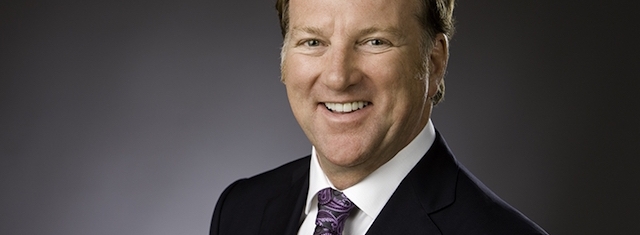Business
THE COSTS AND CONSEQUENCES OF PROPERTY IMPROVEMENT PLANS
BY THOMAS MAGNUSSON CEO MAGNUSSON HOTELS

Thomas Magnusson (Source: Courtesy Thomas Magnusson)
USPA NEWS -
It is claimed that PIPs (property improvement plans) exist to ensure all franchisees are brand compliant and to drive customer satisfaction. However, it appears big brands such as Choice, Holiday Inn, Wyndham and Best Western, often use them to push hoteliers out of a market to benefit corporately.
t is claimed that PIPs (property improvement plans) exist to ensure all franchisees are brand compliant and to drive customer satisfaction. However, it appears big brands such as Choice, Holiday Inn, Wyndham and Best Western, often use them to push hoteliers out of a market to benefit corporate expansion strategies. So are PIPs really in the best interests of franchisees?Thomas Magnuson, CEO, Magnuson Hotels, questioned, and launched the debate.
PROPERTY IMPROVEMENT PLANS DEFINES BRAND REFRESHING IS PART OF BRANDED HOTEL OWNERSHIP-------------------------------------------------------------------------------------------------------------------------------------
Brand refreshes, defined by Property Improvement Plans (PIPs), are initiatives that many major chains have undertaken in recent years and by default, are an essential part of branded hotel ownership.
MAGNUSSON HOTELS BECOME AMERICA´S FASTEST GROWING HOTE BRAND AND A TOP 10 GLOBAL CHAIN---------------------------------------------------------------------------------------------------------------------------------------------
Thomas Magnuson is the CEO of Magnuson Hotels, he founded 13 years ago, through the emphasis on the ability to 'run your hotel your way',
He is now questioning, and launching the debate about Property Improvement Plans (PIPs) and their costs and consequences, in large scale. Based on his experience empowered by his own skills of managing Magnusson Hotels that become America´s fastest growing hotel brand, and a top 10 global chain, marketing 1000 hotels across six countries and three continents.
Choice Hotels International announced a complete brand rebirth in 2015, one that would encompass a new logo, website and refocused marketing efforts to reflect the new branding. Just a few months later, Best Western followed suit and also launched a re-positioning that entailed similar changes, along with the addition of new brands to its portfolio. However, with all of this progression comes a potentially darker side, one that can leave well-intentioned franchisees engaged in needless litigation and with big economic losses.
When Choice Hotels made the announcement, it did so with one clear caveat: all franchisees would have to renovate their properties to fall in line with this new branding through adhering to a specific property improvement plan. President and CEO Steve Joyce told a media round-table that those who didn´t comply would invariably become “one of the 600,“ a reference to the 600 franchisees that had been terminated the year before.------------------------------------------------------------------------------
Choice Hotels has come under fire before for so-called “anti-franchisee policies“, and many in the industry view PIPS to be a prime example. Choice became an archetype of the industry-wide practice of imposing PIPs that entail extensive and expensive renovations. Failing to comply with even the smallest aspect can result in penalties and in some cases termination as a franchisee altogether ““ so are PIPs really in the best interests of today´s hotel owners? -----------------------------------------
WHAT ARE THE COSTS AND CONSEQUENCES OF PROPERTY IMPROVEMENT PLANS DEFINES ?------------------
A PIP is, more often than not, an expensive undertaking, and one that can place an enormous financial burden on small franchisees. This is not only in the form of the cost of undertaking renovations and the loss incurred with the disruption to business, but constantly evolving standards mean properties often have to endure ongoing renovations to remain compliant.
In many cases, perfectly functioning hotels 10 years of older are forced to make design changes that may not be economically viable. For example, exterior corridor hotels may be deemed no longer permitted, and if one wants to stay with its brand, it will need to structurally enclose all exterior corridors. Many brands say market research states that exterior corridors are unsafe. Yet, top hotels such as the Arizona Biltmore or Hawaii´s legendary Mauna Kea Beach Hotel use exterior corridors.
Some brands are now requiring costly installation of elevators for 2 story properties, even when the property goes above and beyond in providing top quality disabled facilities on the ground floor. For a 40 room Best Western grossing $500K a year, the cost of the elevator is nearly 15% of annual sales. Holiday Inn Express, which recently implemented its “˜Formula Blue´ PIP requires hotels to redo all rooms and common areas whether the fixtures are old or not. For a 100 room property, design oriented PIPS can easily run $200,000. Hotels in a franchise are required to stay up to date with the set brand standards, and failing to stay up to date with these can result in hefty fines. For example, one top global franchise actually fines franchisees $2000 for running out of bananas at the hotel breakfast bar.
Magnuson Hotels Property Improvement Plans Thomas Magnusson Wildwood Inn Florida Ellis Rahma Sophia Rachdi
Liability for this article lies with the author, who also holds the copyright. Editorial content from USPA may be quoted on other websites as long as the quote comprises no more than 5% of the entire text, is marked as such and the source is named (via hyperlink).






